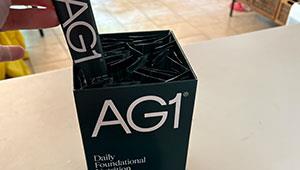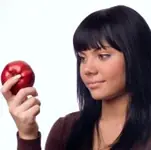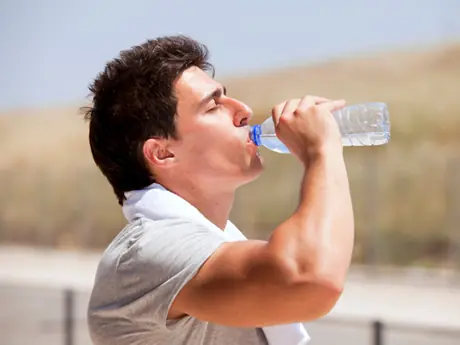Do You Need to Compost at Home?
According to Bartholomew, composting at home is a vital part of maintaining nutrient-rich, organic soil in an economical, eco-friendly way. Hiner maintains a compost pile at home in her backyard that contains kitchen scraps, plant waste and leftover hay from the goats that she helps milk and tend to at her neighbor's house. The drawback of composting, according to Hiner, is that it takes about a year to form a healthy pile to use in the garden, and moving so frequently has taken a toll on her compost project.
Hiner recommends placing all of your food scraps, yard waste and any "brown bits" such as hay in one place in the yard, and to simply keep piling it up. "Anytime you cut down plants that you're not going to eat, or anytime you weed wack, put it in the compost pile instead of putting it in the green bin, then having the truck come pick it up to put in a landfill. They'll just use it to make compost out of it anyway, and you'll go buy that compost right back to use in your garden."
Another organic fertilizer is to use animal manure. Hiner has easy access to this from her nearby goats, and she also keeps chickens in her yard. She reports that it only takes about a week to see the effect of these all-natural, organic fertilizers, and that impact is a booming garden.
Hiner's Tips and Recommended Resources for a Sustainable Home Garden
-
Start small, and expand as you become more comfortable.
-
Seek out a gardening workshop for beginners in your area, or volunteer at a local farm or food organization to learn more about gardening. For example, the San Diego Roots Sustainable Foods Project is a nonprofit that offers a plethora of volunteer opportunities for adults and children; one of the most popular is building sustainable home gardens in the yards of people who wouldn't otherwise have the resources or ability to do so. Look for a similar organization in your area.
-
Soil testing for proper pH levels isn't a necessity. Hiner doesn't do it at home, so while the pH of her soil might not always be optimal, she's still able to grown fruits, vegetables and herbs abundantly.
-
Learn the right time to plant certain crops. Hiner relies on a resource targeted at Southern California gardeners that tells users when it's optimal to plant different crops. It also provides pointers for composting.
-
Learn about compatible gardening. Look for an online resource that tells you what you should plant close together, and what plants don't thrive next to each other.
-
Connect with people in your area who are home gardeners and doing what you hope to do, and ask lots of questions.
Already rooted in the local foods scene in San Diego—Hiner's brother is an organic chef and caterer—she tapped into the knowledge and resources of her local food community to improve her gardening skills. Her connections also empowered her to raise her own chickens for eggs and goats for milk.
"It was so rewarding to plant my own garden; I got such a sense of pride when I started growing my own food," Hiner says. "Then it got addictive and I wanted more, and the next step was chickens."
Hiner was among a group of local foodies that changed some of the urban agriculture ordinances in her area so that she could keep goats and chickens in her backyard, and allow the chickens to roam free in her yard. "There are lots of cities now that allow chickens—LA, Seattle and even New York City—and that's how we were able to get the ordinances passed. We said, 'All of these progressive cities are doing this, and don't we want San Diego to be on this list?'"
Thanks to advocates like Hiner and a well-timed grant that needed to be allocated before it expired at the end of the year, several urban agricultural ordinances were passed to make it easier for San Diegans to get access to locally produced food. "Now people can keep chickens, and then other people jumped on board and said we want to raise bees, and others came and said they want to be able to sell tomatoes on the side of the road," reports Hiner. And to think this micro local, sustainable foods movement all started with a home garden.
Related Articles:
- Are Organic Foods Better?
- Substainable Food and Recipes for Athletes
- 9 Tips for Eating Healthy on a Budget
 Find more nutrition tips.
Find more nutrition tips.
- 3
- of
- 3
About the Author









Discuss This Article